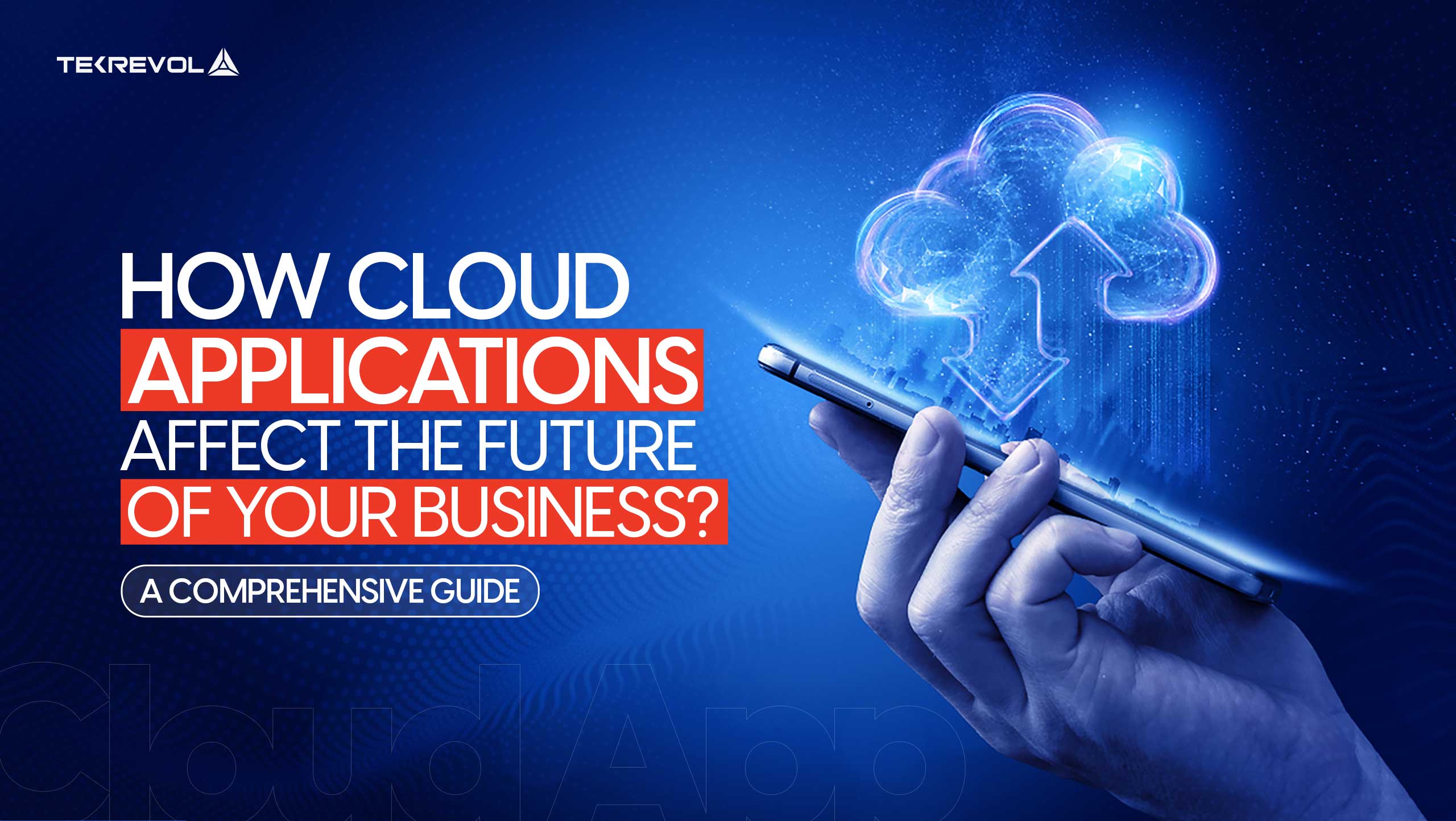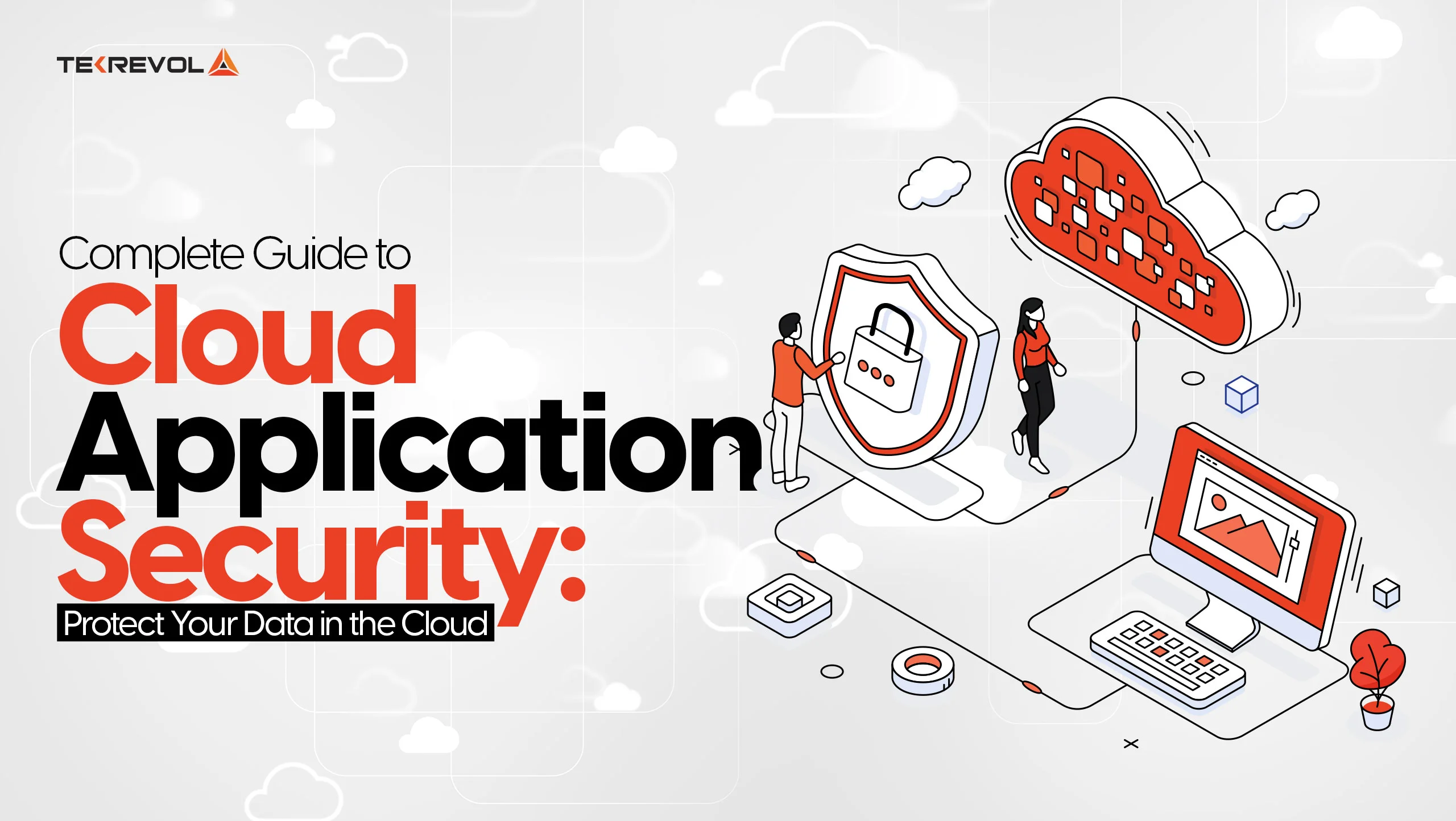Businesses are rapidly moving towards embracing technology in their operations, and cloud applications are widely accepted as the foundation of modern business frameworks. What were once just buzzwords in the IT industry have evolved into critical enablers that deliver performance improvement and operational effectiveness to businesses across industries.
Cloud applications are a new way of engaging with software, data, and business management and growth. With the rise of technology and customer-generated data to manage customer experiences, there is a growing need for flexible structure to improve organization and increase efficiency.
This increase in the utilization of cloud computing and cloud based applications is changing the fabric of the digital world in a way that provides almost limitless opportunities for growth and efficiency.
In many organizations and small businesses, adopting cloud app development has become necessary for new entrants and even large organizations to create a competitive advantage in the marketplace.
What are Cloud Applications?
Cloud applications or cloud apps are one of the most groundbreaking concepts in modern business software usage and data management. Fundamentally, these applications are applications where parts of functionality are in the cloud other parts are installed locally, and data and processing logic are partitioned between client and server.
Many of these applications rely on cloud architecture provided by cloud service providers that enable users to connect to information and programs over the internet, without requiring massive local hardware infrastructure. This model provides organizations with great flexibility, scalability, and cost efficiency when compared to more conventional software delivery models.
Cloud apps are intended to be a system of loosely connected components that create tangible business benefits and increase capacity. It can be implemented and used to make management easier through automation and enhancing the user interface regardless of whether it is in private, public, or hybrid cloud solutions.
As Gartner states, the end-user spending on public cloud services globally is expected to increase at a rate of 20.7% to total $591.8 billion in 2023 from $490.3 billion in 2022. These figures show that the use of cloud applications continues to grow significantly across industries.
- Curious About Cloud Apps?
- Discover their benefits consulting with our experts.
The Benefits of Cloud App Development
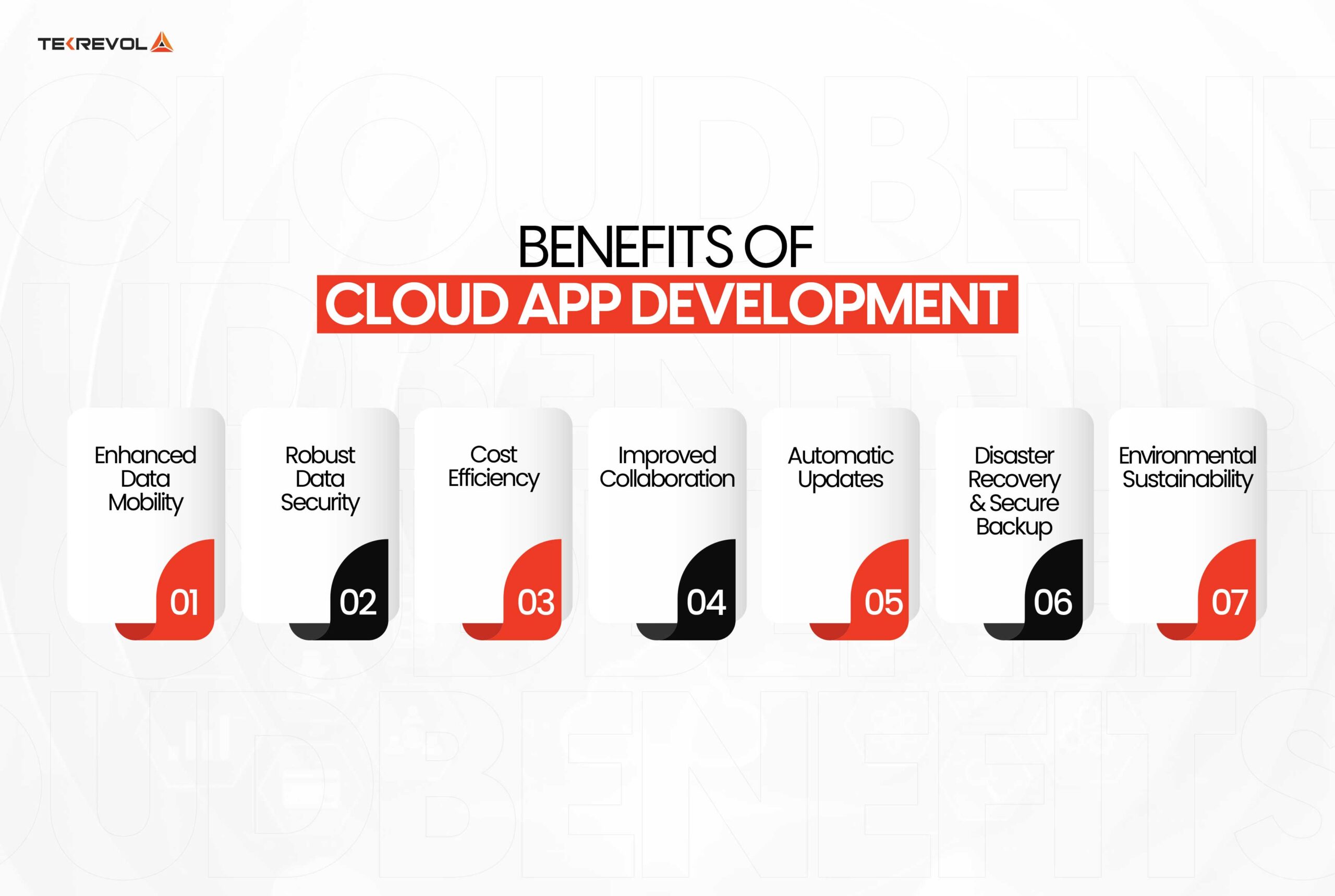
The benefits of cloud app development are not just about saving time and effort. They provide value for organizations that need to make crucial changes to stay relevant within the global economy, especially within an online environment.
- Enhanced Data Mobility: Cloud applications have flexible data portability where users can access, transfer, and share data and files beyond physical limitations with no restrictions. This feature is especially important within the current situation with distance and hybrid work settings.
- Robust Data Security: Surprisingly, it has been observed that cloud architecture offers better data security services at times. The utilization of data encryption, the implementation of role-based access control, and two-factor authentication translate into the enhanced safeguard of sensitive information.
- Cost Efficiency: To employ cloud software initially, there is usually some expenditure but in the long run, it proves efficient in terms of expenditure. Companies can eliminate costs involved in maintaining hardware, managing resources, and IT team management.
- Improved Collaboration: Cloud applications enable people to work together in real time regardless of their location, thus increasing the speed of producing new products and services.
- Automatic Updates: It is also important to note that most cloud architectures have their service providers who automatically update and maintain the architecture. This feature helps to significantly minimize the demands on internal IT specialists and consultations.
- Disaster Recovery and Secure Backup: Cloud application development provides off-site data backup and recovery systems with less investment, especially important for organizations that depend on data analysis.
- Environmental Sustainability: Cloud applications mean that there is also less demand for physical hardware and paper systems that require electricity, contributing to less carbon emission and more energy efficiency.
According to a Flexera survey, 92% of enterprises employ a multi-cloud policy, and 82% of them use a hybrid cloud policy, proving that organizations in various industries adhere to cloud solutions.
- Want cloud computing benefits?
- Consult Tekrevo.
Different Types of Cloud Application Architectures
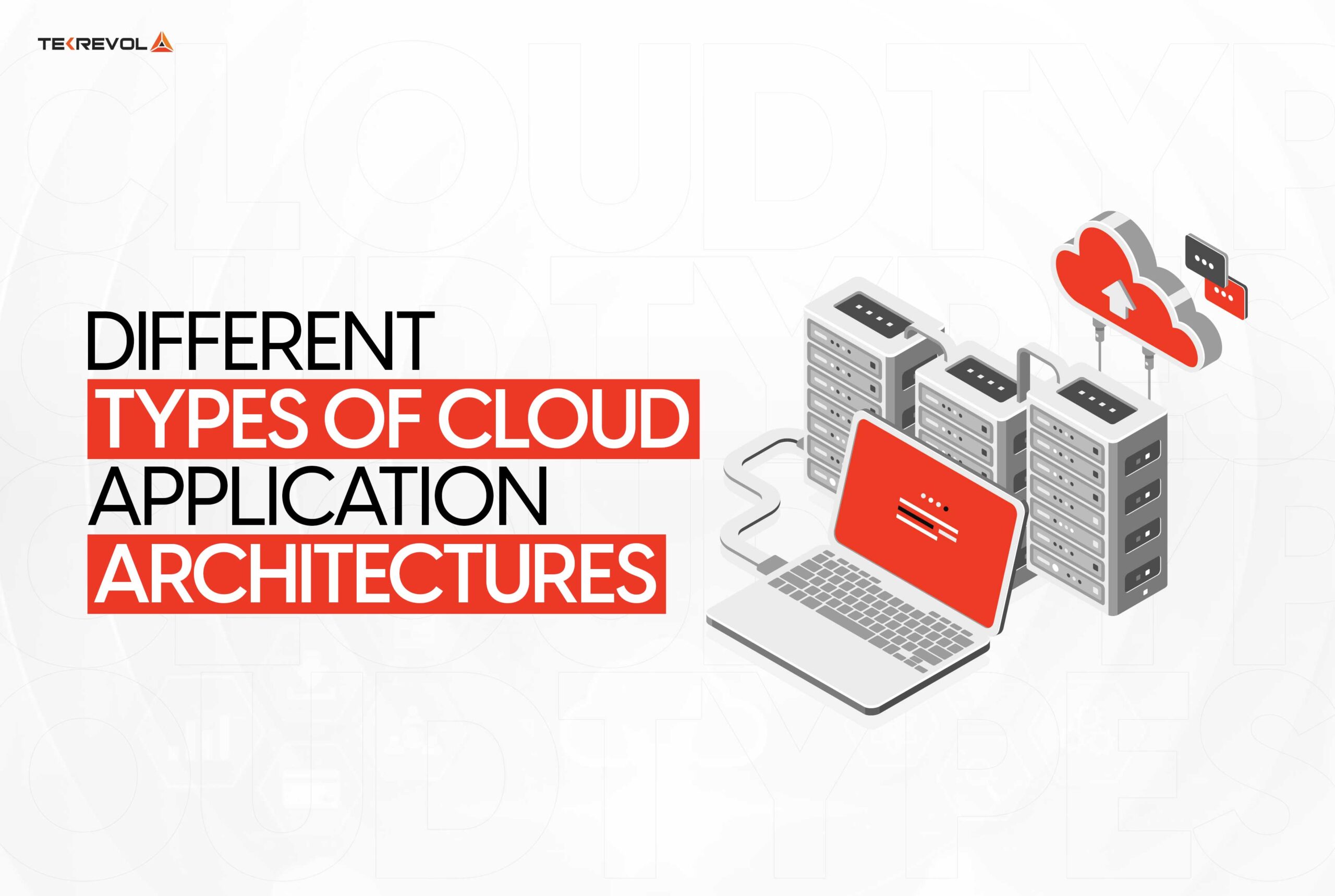
To be more precise, when referring to cloud application development, companies must consider the most suitable architectural style for their needs. The three primary cloud software designs are:
- Infrastructure as a Service (IaaS): This model offers the hardware and framework required to construct and implement cloud-based applications. IaaS can also be demonstrated using Amazon Web Services (AWS) as an example since it offers services through the Internet.
- Platform as a Service (PaaS): PaaS also comprises both the hardware and software such as operating systems and middleware. Google App Engine is an excellent example of applying this model and offering stable hosting services.
- Software as a Service (SaaS): This is the most integrated model; it provides infrastructure, hardware, and turnkey cloud software solutions. Some examples include Google Workspace for productive collaboration and Dropbox for efficient sharing of documents.
All these models are suitable for various business needs, ranging from those companies that need full control over infrastructure to those companies that want to have turnkey solutions.
What Will The Future Of Cloud Applications Bring Us?
Moving forward into the future the advancement and adoption of cloud applications is even more promising as it aims to have even better compatibility with advanced technologies. Below are some of the trends that are defining cloud computing today:
- AI and Machine Learning Integration: Businesses can now utilize more sophisticated tools in the cloud as platforms start incorporating AI and ML.
- Edge Computing: Edge computing will develop and become an extension of cloud solutions that will enable the analysis of data near the source.
- Serverless Computing: This model further eliminates server management as a concern for developers as they only need to be concerned with code.
- Multi-cloud and Hybrid Cloud Strategies: Companies are expected to continue the trend where they use more complex cloud models with different providers and on-premise solutions.
- Enhanced Security Measures: The threats are also increasingly becoming sophisticated, and to match this, cloud providers are continually enhancing security by adding improved encryption and threat detection mechanisms.
- 5G Integration: The availability of 5G networks will complement cloud applications by performing more efficient data transfers and feedback.
- Internet of Things (IoT) Expansion: The data gathered from IoT devices will require effective management and analysis by cloud applications as part of its usage.
Further, as we see from the IDC report by 2025, 49% of data is expected to be stored in a public cloud environment, which supports the notion of continued growth and the significance of such technologies.
Choosing the Right Cloud Solution for Your Business
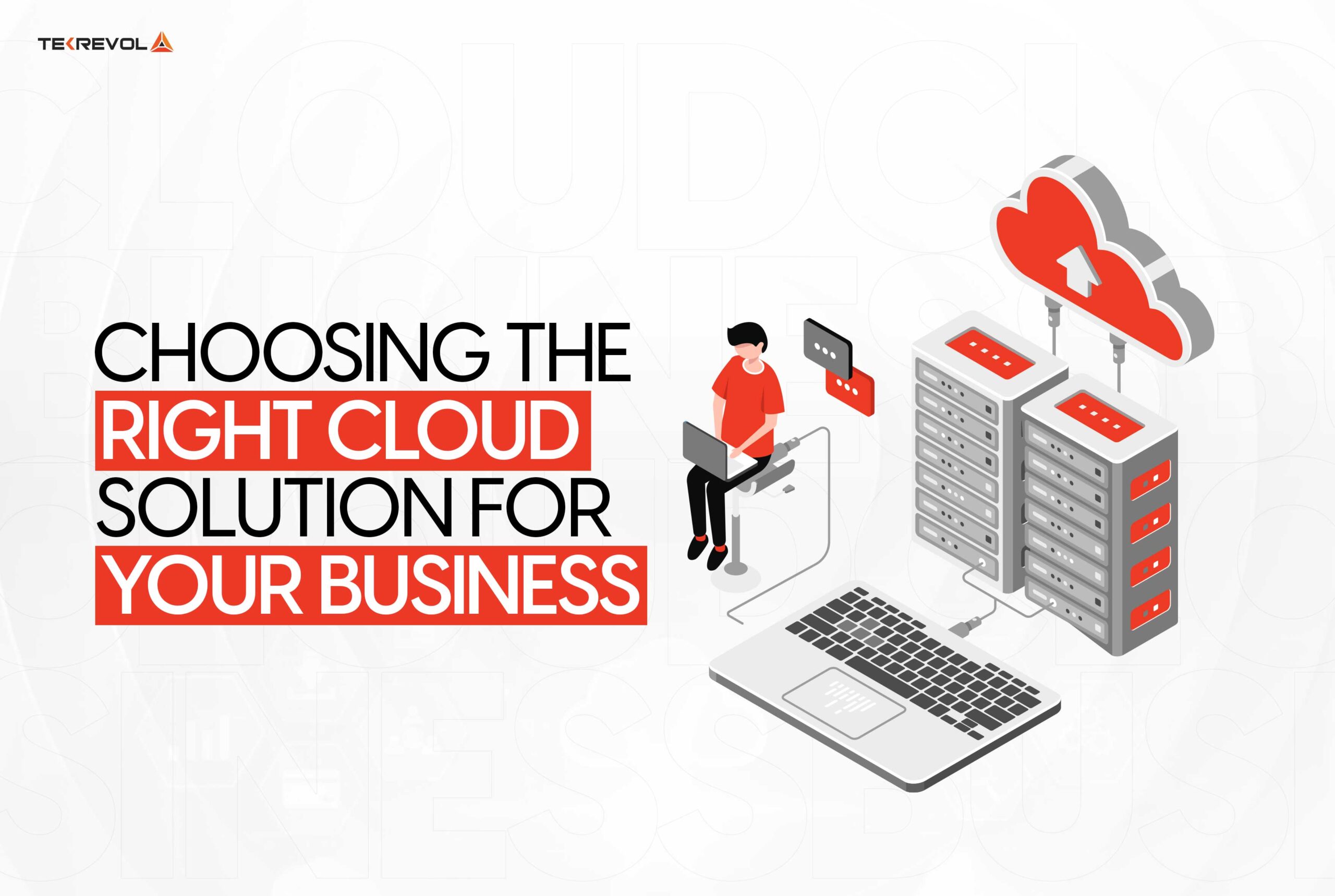
It is therefore important to carefully choose the right cloud solution to achieve maximum benefits from cloud technology. Here are some factors to consider:
- Scalability Requirements: Evaluate your business’s growth potential, and select a solution with room for growth as your business expands.
- Security Needs: Assess the protection level of your data and the security options provided by various cloud solutions.
- Compliance Regulations: Make sure the selected solution aligns with compliance standards specific to the industry.
- Integration Capabilities: Think about how it complements your architecture and if it is designed to fit seamlessly into your current processes.
- Cost Structure: Consider the variety of pricing strategies in such systems and choose the most appropriate solution in terms of cost.
- Support and Reliability: Select providers, who have better availability rates and services, as well as customer care support.
- Struggling to choose the right cloud solution?
- Let Tekrevol guide you to the best cloud options.
The Role of Cloud Consulting Services
The best cloud consulting services can prove highly useful for companies facing a challenging array of possibilities in the field of cloud technologies. These services offer expertise in:
- Assessing current IT infrastructure
- Developing cloud migration strategies
- How to improve performance and reduce costs of cloud environments
- Security and compliance in cloud environments
- Developing the course on new cloud training technologies
Outsourcing the migration process to an experienced cloud application development company can introduce considerable comfort into the process of switching to cloud solutions and guarantee that enterprises harvest the potential of cloud-based systems.
Cloud Migration: A Strategic Imperative
With the development of technologies, there is an increasing demand for cloud migration services among enterprises. It is the process of transferring applications, data, and other business components from an organization’s internal network to the cloud.
Key benefits of cloud migration include:
- Improved scalability and flexibility
- Enhanced disaster recovery capabilities
- Reduced IT costs
- Increased collaboration and productivity
- Availability of new technologies/products and/or services
However, cloud migration is a process that is not easily done and needs to be well thought out and planned for. It is therefore advisable for any business planning to migrate their applications to the cloud to seek the services of competent cloud migration services providers to avoid the following risks.
What Will The Future Of Cloud Applications Bring Us?
The future of cloud applications is filled with a scene of innovative and integrated future. Currently, we are on the brink of the technological revolution, and cloud applications will inevitably become more intelligent, secure, and widespread.
Cloud computing integrated with new technologies such as AI, blockchain, and quantum computing will create new opportunities that will redefine industries and businesses. New and progressive multi-cloud as well as edge computing solutions can be expected in the future, bringing about efficient data analysis and real time decision making.
There will be continued progress of serverless architectures that will even remove infrastructure concerns from the face of the developers. 5G connectivity becomes mainstream, Cloud apps will capitalize on available bandwidth and further declining latency, shaping new-gen IoT environments and enhanced realities.
Furthermore, improvements in security features will continue to develop in response to the ever-growing threats to cybersecurity making data secure and protected in a global network society. This future is not just about technology; it is about transforming how enterprises work, create, and capture value in a world that is increasingly driven by the cloud.
Tekrevol: Your Partner in Cloud Innovation
At Tekrevol, we pride ourselves on helping our clients navigate the journey towards the cloud. With Tekrevol as your leading cloud application development company, you benefit from our team of professional developers designing bespoke solutions for your business. We offer comprehensive cloud consulting services, specializing in:
- Custom cloud application development
- Cloud migration and modernization
- Multi-cloud and hybrid strategies
- Cloud security and compliance
- DevOps and CI/CD implementation
- Cloud cost optimization
Our focus on the client’s needs is designed to match the solutions to the goals you aim to achieve, providing you with sustainable, safe, and efficient cloud services. When you choose Tekrevol, you do not just hire a service provider; you acquire a strategic partner for digital transformation.
Tekrevol is your partner for the modern future of cloud computing to confidently choose. Let us implement and unlock all the value that cloud technologies offer, guarantee continued innovation, improved customer experience, and sustainable market growth in the current environment.
- Ready for the next wave of cloud innovation?
- Partner with Tekrevol and stay ahead.
Final Thoughts!
Cloud applications are one of the most significant changes that occur in today’s business environment, boosting innovations and effectiveness. Adopting cloud technology helps to improve flexibility, expansiveness, and competitiveness using IaaS, PaaS or SaaS. Cloud technologies continue to become more advanced, and these advancements introduce potential, such as AI and IoT integration.
The organizations that are interested in achieving cloud success or startups and have not implemented cloud yet, finding the right cloud application development service providers or using cloud consultancy can be beneficial. Cloud application is an essential strategy for maintaining sustainable business success in today’s highly globalized market environment characterized by a digital business revolution.

